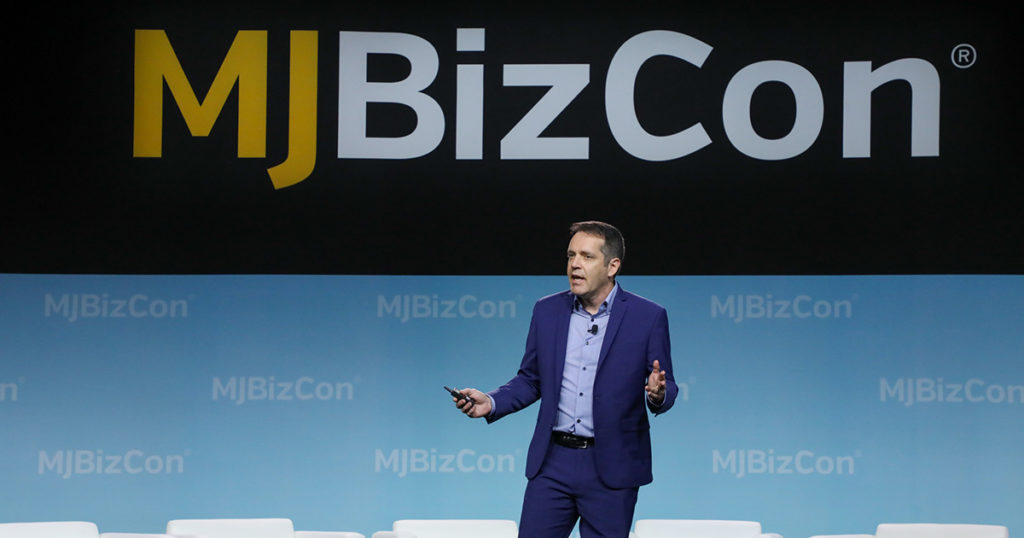Cannafans in Oregon will drive miles out of their way to find the best deals on flower, tinctures and vapes, but New Yorkers aren’t so price sensitive. Those weed consumers care more about online ordering, though, which ranks at the top of their list for dispensary consideration. Buyers in Florida, meantime, will skip a retailer if it doesn’t have easily accessible parking.
These factoids, shared during a recent session at the annual MJBizCon gathering in Las Vegas, were meant to make a point about how cannabis retailers should be studying their customers’ behavior and tailoring their approach accordingly.
“You have to understand consumers at their core, know their motivations and their lifestyles,” Bethany Gomez, managing director of Brightfield Group, said during the panel. “That way you can build out your unique positioning.”
The session was one of dozens—featuring about 180 speakers in all—at MJBizCon, an event that drew some 35,000 people to its 280,000 square feet of exhibition space. The conference, now in its 11th year and considered the granddad of weed trade shows covering everything from brands and packaging to cultivation and investments, wrapped on Friday.
Gomez and fellow panelist Gary Allen, CEO of New Frontier Data, preached the gospel of a data-driven approach in an industry that has been slow to adopt the tactic. Stats matter, Allen said, noting that 85% of women cannabis consumers buy online while 85% of men make the trip to a physical location.
“There’s a gender gap,” Allen said, noting that embracing such insights will go a long way to making cannabis shops reflect their successful peers in mainstream retail.
Gomez and Allen also cautioned dispensaries against seeing themselves as just warehouses for gummies, pre-rolls and THC-spiked beverages. The brick-and-mortar venues are, after all, the front line for the industry, a critical component in what’s estimated to be a $33 billion business in 2022.
“You can’t think of a dispensary as a place that sells cannabis,” Gomez said. “It’s a brand, and it needs to have an authentic relationship with the consumer.”
In two recurring themes of the week-long conference, Allen mentioned both rising inflation and the fierce battle to win over consumers who are still buying in the illicit market. He pegged that number at a staggering 100 million people.
“As wallets are shrinking, it’s time to find more wallets,” Allen said. “The wallets are out there.”
Sobering reality checks
While trade shows are opportunities for any industry to celebrate itself—and MJBizCon had its share of backslapping and cheerleading—the mood was perceptibly sober, so to speak. The reason: ongoing, serious problems that include price compression, investment woes, federal prohibition and sky-high taxes, in addition to near-chaos in legacy markets like California and New York’s lawsuit-plagued kickoff to its adults sales.
“It’s subdued—everyone seems an inch shorter this year,” Geoff Trotter, co-founder and chief growth officer of exhibitor Regennabis. “It feels like cannabis companies take one step forward and get knocked back two. No matter how resilient you are it’s going to take a toll on an individual and collective basis.”
A dose of controversy at the event showed that the industry’s problems aren’t just from outside factors like legislation and economics; there are also issues such as racism and sexism stemming from within the industry. This was unironically put on display by a brand that sent its reps to the show floor wearing “Buy Weed From Rich White Men” t-shirts—a trolling move aimed at the “Buy Weed From Women” movement. They were not greeted warmly, and social media lit up with complaints and backlash.
The conference itself didn’t shy away from current challenges; it showcased them in sessions with analysts, investors, C-suite executives, brand founders, retailers and others.
An early-week panel that included a handful of industry heavyweights—among them Troy Datcher, CEO of California’s The Parent Company, Nancy Whiteman, CEO and co-founder of Colorado-based Wana Brands, and Ruben Lindo, founder and CEO of Blak Mar Farms—highlighted problems like painful layoffs, cost cutting and inevitable consolidation. Whiteman noted the rapid rise of delta-8 THC, an untested synthetic cannabinoid that sells at gas stations and other well-trafficked shops. The CDC and the FDA have warned of “serious health risks” associated with the unregulated goods.
Marijuana Policy Project president Toi Hutchinson, during the same session, noted the continued mass incarceration of people of color, despite the growing state-by-state legalization and decriminalization movement in the U.S. and President Joe Biden’s recent promise to reform federal drug laws.
“We are still arresting 600,000 people every single year,” she said.
In his “state of the industry” remarks, MJBiz CEO Chris Walsh continued the theme, noting that some companies in business today will not weather the storm.
“There’s going to be a culling,” he said.

And despite two states (Maryland and Missouri) recently voting in midterm elections to legalize recreational sales, Walsh said he senses an organized opposition in some red states. (Residents in three states—traditionally conservative North Dakota, South Dakota and Arkansas—rejected adult-sales initiatives earlier this month.)
Amid the gloomy reality check, there are bright spots, Walsh said, including U.S. sales that are likely to break records again this year, pivotal states like New Jersey launching their recreational programs and POTUS addressing cannabis policy and pardoning federal prisoners.
Other positive signs could come in 2023, he said, such as additional states legalizing (eyes are on Pennsylvania, Ohio and Minnesota), the federal rescheduling of cannabis, per Biden’s recent promise, and changes in the financial system. Even in a lame duck environment, the Safe and Fair Enforcement Banking Act could have enough bipartisan support to pass, he said.
“I think we’ll see something meaningful happen,” Walsh said. “I’m looking for optimism.”
https://www.adweek.com/commerce/mjbizcon-sessions-indicate-that-despite-its-issues-the-cannabis-industry-isnt-up-in-smoke/

